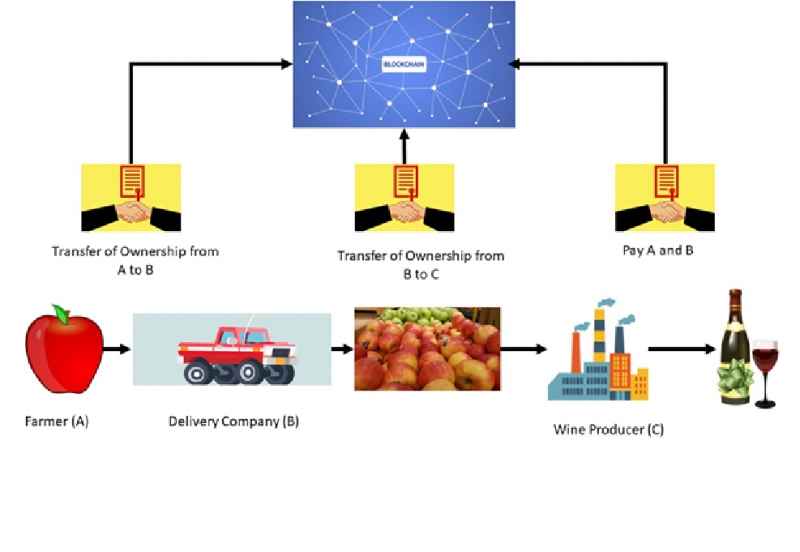-Abhishek Khadka
Food Scientist
Rural Reconstruction Nepal
Blockchain technology has the potential to revolutionize food safety by providing a transparent,tamper-proof record of food products throughout the supply chain. This technology offers solutions such as traceability, transparency, fraud prevention, and rapid response. However, there are challenges to the implementation of blockchain technology, particularly in developing countries.
One of the challenges is the lack of infrastructure, including reliable internet connectivity, electricity supply, and hardware devices, which are essential for blockchain-based systems to function effectively. For instance, Nepal still faces significant challenges related to internet connectivityand access to technology that can hinder the adoption of blockchain technology.
Another challenge is limited financial and human resources in developing countries to invest in new technologies, such as blockchain. The cost of developing and implementing blockchain-based systems can be high, which may make it difficult for smaller businesses to adopt the technology. Additionally, there may be a shortage of skilled professionals who are knowledgeable about blockchain technology in developing countries, which can also hinder adoption.
Furthermore, the regulatory environment in developing countries may not be conducive to the adoption of blockchain technology. Limited regulations or guidelines around data privacy and security can make it challenging to implement blockchain-based systems that comply with existing laws.
Despite these challenges, the benefits of blockchain technology in food safety are evident. By using blockchain-based systems for traceability, transparency, fraud prevention, and rapid response, food producers and retailers can ensure the safety and quality of their products, which builds trust with consumers.
For example, Walmart has implemented a blockchain-based system for its leafy green vegetables, allowing the company to track the journey of the vegetables from the farm to the store and providing a comprehensive record of the supply chain. In the event of an outbreak, Walmart can quickly identify the source of the contamination, allowing for a rapid response to prevent further contamination.Similarly, Bext360, a blockchain-based startup, has developed a system for tracing coffee beans from the farm to the cup. The system enables consumers to scan a QR code on the coffee package to access information about the origin of the beans, the farmers who grew them, and the journey of the beans through the supply chain. This provides consumers with a greater understanding of the journey of their coffee and builds trust between the consumers and the coffee producers.
In Vietnam, TE-FOOD has implemented a blockchain-based food traceability system to prevent counterfeit pork products from entering the market. The system enables consumers to scan a QR code on the pork package to access information about the origin of the pork, the farmers who raised the pigs, and the journey of the pork through the supply chain. This helps to prevent the entry of counterfeit pork products into the market, ensuring that consumers receive safe and high-quality products.
IBM has developed a blockchain-based system for tracking food products through the supply chain in the event of a food safety issue or outbreak. The system enables food producers to quickly identify the source of any issues or contamination that may occur, allowing for a rapid response to prevent further contamination. This has the potential to save lives and prevent serious health issues that may arise from contaminated food products.
As more consumers demand greater transparency and accountability in the food supply chain, blockchain technology provides a solution that can meet these demands. With the implementation of blockchain-based systems, food producers can improve their operations, reduce costs, and ultimately ensure the safety and quality of their products.
In conclusion, although the implementation of blockchain-based systems requires significant investment and resources, the potential benefits of blockchain technology in food safety cannot be ignored. Blockchain technology has the potential to be a game-changer in the food industry by providing a transparent, tamper-proof record of food products throughout the entire supply chain.
